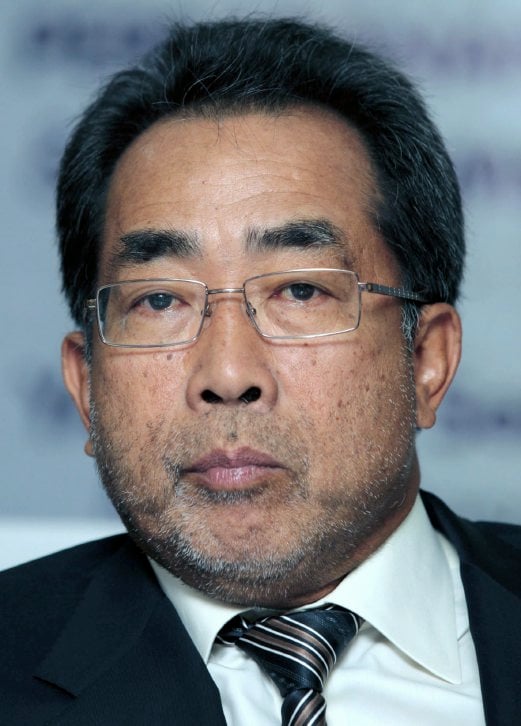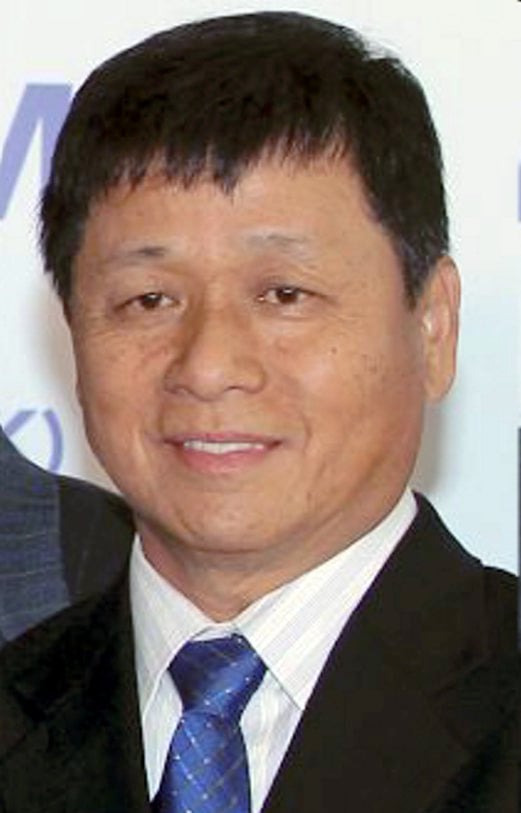TIME flies, just a few weeks ago I ushered 2015 with my family in Tawau, Sabah. While everyone is reflecting on the year that was, we need to open up our minds and hearts to everything that 2015 will bring.
For a start, head teachers and school principals must do all they can to make the transformation of our education system effective.
Much emphasis has been placed on an efficient and effective school leadership by the Education Ministry.
My past experience as a school inspector in Sabah, had taught me that one of the best ways to improve a school’s management is to identify areas of weaknesses for further improvement.
I remember how a struggling school like SMK Abdullah, Semporna, earned Sekolah Harapan (school with potential), thanks to its principal then Datuk Misrah Ibrahim. He shared with me that he had referred to the report of the Schools’ Inspectorate to help him improve the school.
In June 1996, I was faced with the challenge of turning around SM Vocational Tawau ( SMVT). At that time, the status of the school was that of a “failing school”, recording 28% passes in the Sijil Pelajaran Malaysia Vokasional (SPMV) examination.
Judging from this poor academic performance, it was clear that there was a dire need to change the school management. I asked the Federal Schools’ Inspectorate led then by Datuk Nik Faizah Mustafa to carry out a full inspection.
She was surprised by the invitation because she knew that most school principals would not like the presence of inspectors at their schools. But I assured her that I still believed in the role played by the Schools’ Inspectorate, and that I had the confidence that its findings would throw some light on what my school should focus on improving.
Four years later, the school won the Anugerah Kualiti Menteri Pendidikan (Education Minister’s Quality Award) for school management.
People sense
Mark McCormack in hisbook What They Don’t Teach You at Harvard Business School, describes business situations as “people sense”.
He says that no matter what the deal is, it is the executives with a finely tuned people sense, and an awareness of how to apply it, who will invariably triumph.
Likewise, school situations also always come down to people situations.
What we manage in schools are people – the students, the teachers, the support staff, the parents and the community at large – and this aspect of management needs to be handled with care.
A good leader is accountable and willing to improve. Weak leaders will not want to admit to mistakes and will waste a lot of time trying to defend themselves in order to save face.
Sadly, when leaders dodge issues or pretend that everything is fine when it is not, they are actually demonstrating a lack of emotional and professional maturity.
The school leader who lacks emotional maturity but projects the image that he knows it all, will soon lose credibility.
This was pointed out by Harold Geneen the president and CEO of International Telephone and Telegraph Corporation, in the United States.
Geneen admired for his management style, said that one of the essential attributes of a good leader is enough self-confidence to admit his own mistakes and know that they won’t ruin him.
The true test is to be able to recognise what is wrong as soon as possible, and then to set about rectifying the situation.
Humility grows when we refuse to be prideful and this is another mark of a good leader.
Leaders also attribute success to other factors like teamwork and collaboration, rather than to themselves. When things go wrong, they have the courage to take full responsibility before blaming others.
One of the common mistakes committed by school principals is to arrive at the new place of work and pass judgmental comments on how poorly managed the school is, compared with their previous place of work.
This unfriendly approach usually creates an instant gap between the new school principal and teachers, as well as the non-teaching staff.
The teachers and staff will sense that they are being indirectly criticised.
Surely any former principal would have made some impact on the school administration and that should be acknowledged by the new school principal.
The strength of any school lies in the hands of the teachers, support staff and students.
Human resource is of the highest value because people produce everything and a leader should first “work” on the people for they are the ones who establish the strategy, structure, system and style of an organisations.
It would, therefore, be unwise for any school head to go and lash out at the staff during the first few meetings.
Forward-looking school leaders need to recognise that the greatest untapped resource within any school is its people’s potential.
Bringing out the best
As leaders, they need to take the responsibility to unleash the potential and talent of their team members by giving them opportunities.
Denying their subordinates the chance and experience to face daily challenges or solve routine problems in the school during the absence of the principals, is denying the subordinates hands-on leadership training and professional growth.
Psychologically such school leaders want to feel needed, important or indispensable so there is a tendency to build dependency due to their personal insecurity. When this happens, the subordinates lose confidence in themselves.
According to the ancient Chinese philosopher and poet Lao Tzu, a good leader is someone who keeps a low profile but still manages to get the job done.
Delegating the job to others is a positive attribute but if a school leader fails to train and develop his subordinates, he has indeed erred as a manager.
The late Mary Kay Ash, businesswoman and founder of Mary Kay Cosmetics, said leaders need to motivate and develop their people to draw on the untapped 90% of their ability. Kay believed that praise would lead to successful performance.
All too often at schools, leaders fail to adequately recognise the contributions of teachers and support staff. Everyone not only deserves but requires recognition for both individual accomplishments and team effort, if leaders want them to consistently perform at their optimum level.
In a typical situation, recognition often goes to a few “superstars”, but what about the others who have contributed to the success of the school or organisation?
In most instances, they are taken for granted and sadly forgotten
A new teacher who came to my former school had taught for 24 years. When he was assigned to play the role of a liaison officer to a visitor, he did a wonderful job and I sent him a memo of thanks and appreciation.
The next day he came to thank me, with tears in his eyes, obviously touched by the memo. The simple but meaningful acknowledgement of his contribution made his day and motivated him to reach greater heights. Indeed, the power of recognition cannot be denied.
I hope that more school leaders will make an effort to appreciate and recognise their teachers and supporting staff because success is not the result of a one-man show, but the concerted efforts of the team.
In management, leaders must have the ability to lead others and true leadership is not about position or status, but about responsibility. Linked with management, leadership is the art of winning assent to objectives, goals and visions through other people.
All the best to our school leaders as they lead and manage their respective schools in this new academic year.
The writer, Datuk Mary Yap is Deputy Education Minister. Connect with her via Twitter @maryyapkc and Facebook.com/maryyapkainching. This is one in a series of articles which appears every fortnight in this column. It also sees the contributions of Second Education Minister Datuk Seri Idris Jusoh and Deputy Education Minister P. Kamalanathan, who share their views on various education-related issues.
The Star Online
Sunday February 8 2015.















